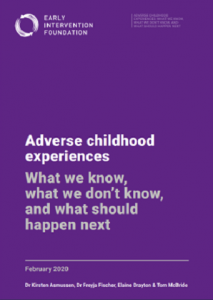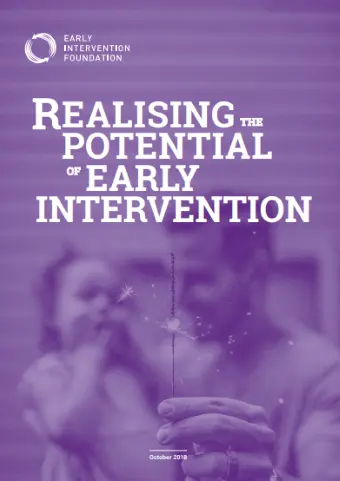iHV welcomes new Early Intervention Foundation (EIF) report – Key competencies in early cognitive development: Things, people, numbers and words.
Children’s early cognitive development should be prioritised as an essential necessity to help prepare them for school and address income-related learning gaps, or we risk disadvantaged children falling significantly behind from the very start of their education, according to a major new report from the EIF.
The report contends that the early development of core cognitive skills, including children’s language development and their understanding of objects, people and numbers, should receive the same level of investment and attention that we currently give to ensuring children are well fed, living in stable homes and have sufficient clothing.
Dr Cheryll Adams, Executive Director iHV, said:
“The Institute of Health Visiting very much welcomes the light that the Early Intervention Foundation has shown on the importance of investing in an infant’s early cognitive skills development, alongside trying to bring all children out of poverty. Their call for investment into more health visitors is particularly welcome.
“Health visitors, as highly trained, public health practitioners, can, not only identify children in need of additional support very early, perhaps even before birth, but start preventative and early intervention support when it will make the most difference, during the infant’s period of rapid development during its first 1001 days of life. We hope that the government will respond to this new evidence which supports so many other experts in recommending investing in health visitors to lead the delivery of the best evidence based outcomes for more vulnerable infants.”
Key findings in the report, Key competencies in early cognitive development: Things, people, numbers and words, include:
- Early cognitive capabilities are highly associated with the quality of children’s early learning experiences and predictive of their later success at school and in the workforce
- Income related learning gaps are already present at the age of four and increase as children grow older, although these gaps can be rectified when high quality support is provided early
- Parents play a crucial role in their children’s early cognitive development – and support from health visitors, nursery educators and childcare can also make a positive difference. This is especially true for children growing up in disadvantaged circumstances





